- Home
- Kay Hooper
Chill of Fear
Chill of Fear Read online
Contents
Title Page
Prologue
Chapter 1
Chapter 2
Chapter 3
Chapter 4
Chapter 5
Chapter 6
Chapter 7
Chapter 8
Chapter 9
Chapter 10
Chapter 11
Chapter 12
Chapter 13
Chapter 14
Chapter 15
Chapter 16
Chapter 17
Chapter 18
Also by Kay Hooper
Copyright Page
PROLOGUE
Leisure, Tennessee
Twenty-five years ago
The little girl huddled, shivering, in the back corner of the closet. She didn’t like the darkness, and shut her eyes tightly so she wouldn’t see it. She held her hands over her ears, pressing hard, to shut out the sound.
Tha–thum.
Tha–thum.
Tha–thum.
But she couldn’t close it out, no matter how hard she tried, and had the frightened notion that it was inside herself. Sometimes, if she put her hand over her chest, she could feel her heart beating, and thought it would sound like that.
Tha–thum.
But this sound was in her head, thrumming, beating like tiny wings as though something tried desperately to escape.
“Go away,” she whispered.
Tha–thum.
Look.
Tha–thum.
Listen.
She couldn’t read very well, it had always been difficult for her, but she could see these words as though they were etched in her mind in bright, flowing script. They were always like that, the weird, shiny letters spelling words she understood.
Hurry. Look.
She couldn’t not look. Had never been able to ignore or withstand those commands.
Hands still covering her ears, she reluctantly opened her eyes. The closet was dark, as she’d feared, but light seeped underneath the door. And even as she focused on that sliver of brightness, she felt the slow, heavy vibrations in the floor underneath her.
Hide.
“I am,” she whispered, trembling. Her gaze was fixed on that sliver of light, and the dread inside her was swelling, huge, filling her.
It’s coming.
Her breath caught on a silent sob as a bit of darkness crossed the sliver of light, and the vibrations beneath her ceased.
Then the bit of darkness swallowed the light, and she heard the closet door rattle.
Tha–thum!
Tha–thum!
Tha–thum!
Oh. No.
It’s here.
Five years ago
“You’re a hard man to find.”
Without taking his eyes from the papers spread out on the table before him, Quentin Hayes said, “But not impossible, obviously. Who was looking for me?”
“Noah Bishop.”
Quentin did look up then, his brows rising. “Of the Spooky Crimes Unit?”
Bishop smiled faintly. “I’ve heard the nickname.”
“Telepathically? That is supposed to be your psychic ability, right?”
“It is. But I didn’t need telepathy to pick up on the ridicule.” He shrugged. “We’ll probably always hear variations of that. But respect will come with success. Eventually.”
Quentin studied the other man, noting the curiously light gray eyes and scarred but striking face that spoke of strength and danger, and undoubtedly prevented all but the bravest souls from expressing open ridicule. That, plus his extraordinarily high success rate as a profiler, had earned Noah Bishop quite a lot of respect within the Bureau, even if this new unit of his was earning just as much mockery.
Still, Quentin had earned his own considerable reputation as a solid investigator who preferred to work alone, and wasn’t at all eager to join a team—or go public with abilities he had been at some pains to conceal.
“So why’re you telling me?” he asked.
“Thought you might be interested.”
“Oh, yeah? I can’t imagine why.”
“Of course you can.” Bishop came into the room and sat down on the other side of the table, still wearing that faint, amused smile. “You saw me coming. Months ago? Years ago?”
Refusing to reply to those dry questions, Quentin said, “I’m not on the clock, in case nobody told you that.”
“What I was told was that you’ve spent at least two previous vacations here in Tennessee. In this same small town. Probably sitting in this same seldom-used conference room of a police department that hasn’t had to deal with much except traffic tickets, domestic disputes, and the odd bootlegger or meth lab in the last twenty years or so. Here you sit, going over the same old dusty files while the local cops shrug and keep the betting pool going.”
“I hear the odds are tipping in my favor,” Quentin said.
“They admire sheer persistence.”
“Most cops do.”
Bishop nodded. “And most cops dislike mysteries and unsolved cases. So, is that why you’re here?”
“You mean you don’t know?”
The mockery didn’t appear to disturb Bishop in the least. Matter-of-factly, he said, “I’m not clairvoyant. Not a seer, like you. And I’m a touch-telepath, not an open one. Not that touching you would necessarily help me to read you; virtually every psychic I’ve known has developed a shield to guard themselves.”
“Then you just assume I’m psychic, is that it?” Quentin had to ask, even though Bishop’s specific reference to “seer” meant he was doing more than assuming.
“No. I know you’re psychic. The same way you know I am, because we tend to recognize each other. Not always, but most of the time.”
“So when do we exchange the secret handshake?”
“That would be just before I give you your decoder ring.”
It surprised a laugh out of Quentin; he hadn’t marked Bishop as a man with a sense of humor. “Sorry. But you have to admit, an FBI unit made up of psychics is pretty off the wall. Almost comic book.”
“It won’t be one day.”
“You really do believe that, don’t you?”
“Science is understanding more every day about the human brain. Sooner or later, psychic abilities will be correctly classified as just another set of senses, like sight or hearing, just as normal and just as human.”
“And you won’t be head of the Spooky Crimes Unit anymore?”
“Let’s just say that it’s only a matter of time before the doubts and disbelief are proven wrong. We only have to be successful.”
“Ah, gee, is that all?” Quentin shook his head. “The closed-case-to-open ratio in the FBI is running—what?—about forty percent right now?”
“The SCU will do considerably better than that.”
Quentin wasn’t sure what he would have replied to the other man’s optimism, but an interruption presented itself when a member of the Leisure Police Department appeared in the doorway.
“Quentin, I know you’re supposed to be on vacation,” Lieutenant Nathan McDaniel said with only a glance toward Bishop, “but I thought you might be interested in this—and the chief okayed telling you.”
“What’s up, Nate?”
“We just got a call. A little girl’s gone missing.”
Quentin was on his feet immediately. “At The Lodge?”
“At The Lodge.”
When the sprawling hotel had been built back around the turn of the twentieth century, it had been christened with some grand-sounding name, now long forgotten. For more years than anybody remembered, it had been called simply The Lodge, and somewhere along the way the owners had given up and accepted that name.
It had been a favored
vacation spot of the rich and reclusive fairly consistently throughout its history, for both its grandeur and its isolation; far from any major city and reached only by a single winding, two-lane blacktop ascending miles from the small town of Leisure, it was about as far from civilization as one could get, especially in these modern days of instant or near-instant communication.
But for all its isolation, The Lodge had more than its fair share of amenities to tempt guests to make the journey to its doors. Its large main building and numerous cottages all boasted spectacular views of the surrounding mountains, and among its other attractions were miles of winding trails for hiking or horseback riding, beautiful gardens, a huge clubhouse holding both an Olympic-size swimming pool and indoor tennis courts, and a very nice eighteen-hole golf course.
Add to all that a highly trained and discreet staff ready to pander to a guest’s every whim, lovely rooms and cottages with luxurious beds and bedding that guests had been known to purchase after a visit, and first-rate spa facilities, and you had a hotel that had put Leisure, Tennessee, on the map. Or at least on the map of deluxe vacation spots.
“The only problem,” Quentin told Bishop as they got out of Quentin’s rental in the circular driveway in front of the main building, “is that the place has a nasty habit of losing people—and they’re almost always children.”
“I don’t imagine they include that in the brochures,” Bishop said.
“No.” Quentin shook his head. “To be fair, there isn’t really a pattern to the thing unless you have the sort of suspicious mind I have. And from what I’ve been able to piece together over the years, the dead and missing, though usually connected to the hotel in some way, are almost never guests. Kids of people who work here, or in the general area, mostly. Locals. And people in this part of the country don’t open up to outsiders, or want anyone meddling in their business.”
“Even when that business is missing children?”
“They’re the self-reliant sort, believe me. They get their dogs and their shotguns and go looking for themselves. In the old days, nobody even bothered to report any kind of problem to the police, and as far as I’ve been able to make out, it’s just as often true in recent years.”
“What sort of time frame are you talking about?”
“I’ve gone back twenty years, at least. And found half a dozen suspicious accidents or illnesses, as well as one unquestionable murder. Not statistically significant for a hotel with as many people passing through as The Lodge can claim, according to the books. But I’m not buying it. And—”
Bishop waited a moment, then prompted, “And?”
“And there have been at least five unsolved disappearances connected with this place, most but not all kids.”
It didn’t take psychic ability to know that Quentin had changed his mind about what he’d been about to say, but Bishop didn’t press him. He merely said, “I think if I were a parent, I’d hesitate to bring my child here.”
“Yeah. Me too.” Quentin was frowning as he watched Nate McDaniel and another of the local cops speaking to a clearly distraught man near the hotel’s front steps.
“And you keep coming back here to find out why this place seems to be . . . cursed?”
Quentin didn’t argue with the terminology. “As you said—most cops dislike mysteries.”
“Especially the ones that touch them personally.”
Quentin’s frown became a scowl, but he didn’t reply to that since McDaniel turned and moved toward them, indicating with a jerk of his head that they should join him.
“According to the girl’s father,” he told them, “she’s not the type to wander off. The mother was having a day at the spa, so he and his daughter were spending the day together. Horseback riding this morning, then a picnic lunch out in the rose garden. But the hamper The Lodge provided didn’t have the girl’s favorite drink, so he went in to get it. Says he wasn’t gone five minutes, though it was probably closer to ten. When he got back to their blanket on the grass, she was gone.”
McDaniel sighed. “Half the staff’s out looking for her, but they didn’t call us for at least an hour.”
Bishop said, “They’ve covered the grounds nearest the buildings, then?”
“So they tell me.” McDaniel eyed him. “I know why Quentin turns up here every so often, but what about you, Bishop? The chief said you were here to talk to Quentin, but might be willing to help us out with this.”
“I’m always willing to help search for a child,” Bishop said. “Did anybody see her after the father left her in the garden?”
“Nobody we’ve talked to so far. And there were other picnics going on in other parts of the garden; it’s a Lodge tradition, especially in summer, like now. But all the others were couples, and my guess is they were too wrapped up in each other to pay attention if a child wandered by.”
“What about if she was dragged or carried past?” Quentin demanded.
Bishop glanced at him. “People notice what’s out of the ordinary. If the child had been resisting or protesting, someone would have taken note. Assuming she was seen at all.”
McDaniel said, “And there’s no sign of a struggle of any kind, Quentin. We won’t find footprints in a garden that’s mostly grass and flagstone paths, though we are checking the planting beds. The only thing the girl left behind was the sweater she was wearing earlier. I’ve called in one of the local search-and-rescue canine teams; they should be here within the next half hour.”
“What’s her name, Nate?”
“Belinda. Her father says she’s never answered to a nickname. She’s eight.”
Quentin turned without another word and headed in the direction of the rose garden out behind the main building.
“There goes a man with demons riding him,” McDaniel said almost absently.
“What sort of demons, Lieutenant?”
“You’d have to ask him. All I know is what I’ve observed the last couple times he’s been here. And all that tells me is that he’s haunted by a crime nobody’s been able to solve in twenty years of trying. The difference is, Quentin just can’t let it go.”
Bishop nodded slightly, but all he said was, “We all have that one case, don’t we? The one that haunts us. The one we dream about at night.”
“Yeah. But there’s another difference for Quentin. The case that haunts him is right out of his nightmares. And his own childhood.”
“I know,” Bishop said.
It was, everyone agreed, creepy enough that a child had vanished right out of a bright rose garden on a sunny summer afternoon; what was even more chilling was when the search-and-rescue bloodhound, after sniffing Belinda’s little pink sweater, merely sat down and howled mournfully.
“Has he ever done that before?” Bishop asked the handler, who shook his head adamantly.
“Never. Cosmo knows his job, and he’s the best tracker I’ve ever had. I don’t understand it.” He bent to his dog, murmuring reassuringly to the trembling animal.
McDaniel shook his head as well, baffled, and told those of his people that had been standing by to continue searching without the aid of a dog. To Bishop, he said, “If you have any special expertise to offer, now would be the time.”
“Yes,” Quentin agreed, staring at Bishop challengingly. “Now would be the time.”
“I don’t know the terrain here as well as the rest of you,” Bishop said, “but I’ll do my best. Quentin, perhaps you could show me the layout of these gardens?”
“And I’ll go talk to the father again,” McDaniel said with a sigh.
Quentin watched the cop stride back toward the main building, then said to Bishop in a lowered voice, “Okay, so no dog-and-pony show for the locals. I get that. But whatever abilities I may have aren’t telling me a damned thing, and I’m hoping yours can be a lot more help in finding this little girl.”
“Telepathy won’t help,” Bishop said, his own voice low. “But there’s another little knack I have that might.”
“What is it?”
Without answering that specifically, Bishop said, “I need a high place, somewhere I can see as much of the surrounding area as possible.”
“The main building has an observation tower. Will that do?”
“Lead the way.”
The “tower” was little more than a cupola jutting up from the roof on one side of the Victorian-style building and housing a twenty-five-foot circular room whose shutters were left wide open in summer. Since The Lodge was centered in a sprawling valley, it was possible to see for miles from this vantage point.
Bishop was silent until they reached the top of the stairs and the tower, then said, “I’ve always believed animals are sensitive to things most people are oblivious to, things beyond even their own keenest senses.”
“Unfortunately, they can’t tell us what’s upset them. Or are you telepathic with animals as well as people?”
“People only, I’m afraid. And not much more than half of them. You know these extra senses of ours are as limited as the usual five.”
“I don’t know a whole hell of a lot about the subject, if you want the truth,” Quentin said, moving to the side of the tower that overlooked the garden area. “Not much science on it, at least that I could find, and I wasn’t very interested in most of the cockeyed theories masquerading as science.”
“Join the SCU, and I can guarantee you’ll learn everything science and experience can tell us about psychic abilities. Your own and others’.”
“I’m not what you’d call a team player.”
“That I can live with,” Bishop said, joining him and gazing out over the gardens. “I need a seer, Quentin, and they’re rare.”
“I don’t see anything. I just know things sometimes,” Quentin finally admitted. “Stupid, useless stuff, mostly. That the phone is about to ring. That it’s going to rain. That I’ll find the keys I lost in some unlikely spot.”
“But sometimes,” Bishop said, “you know where an important piece of evidence will be found. Or precisely which questions to ask of which suspects. Or which line of an investigation is going to be a dead end.”
“You’ve been reading my file,” Quentin said after a moment.
“Of course. You’re one of the few psychics I’ve been able to find already in law enforcement—and the only one already within the FBI.”

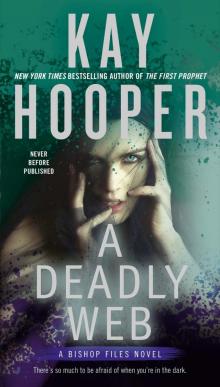 A Deadly Web
A Deadly Web Raven on the Wing
Raven on the Wing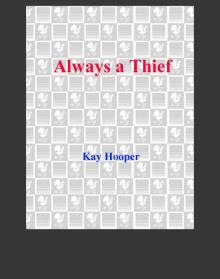 Always a Thief
Always a Thief Star-Crossed Lovers
Star-Crossed Lovers Blood Dreams
Blood Dreams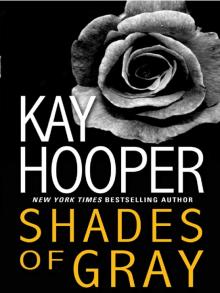 Shades of Gray
Shades of Gray Rebel Waltz
Rebel Waltz Chill of Fear
Chill of Fear Sleeping With Fear
Sleeping With Fear After Caroline
After Caroline Time After Time
Time After Time Haunting Rachel
Haunting Rachel Hunting Fear
Hunting Fear Out of the Shadows
Out of the Shadows Whisper of Evil
Whisper of Evil Blood Sins
Blood Sins Hiding in the Shadows
Hiding in the Shadows C.J.'s Fate C.J.'s Fate C.J.'s Fate
C.J.'s Fate C.J.'s Fate C.J.'s Fate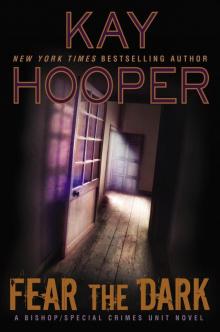 Fear the Dark
Fear the Dark Illegal Possession
Illegal Possession Stealing Shadows
Stealing Shadows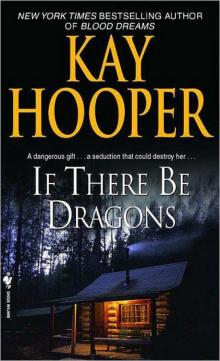 If There Be Dragons
If There Be Dragons Once a Thief
Once a Thief In Serena's Web
In Serena's Web On Wings of Magic on Wings of Magic
On Wings of Magic on Wings of Magic Hostage
Hostage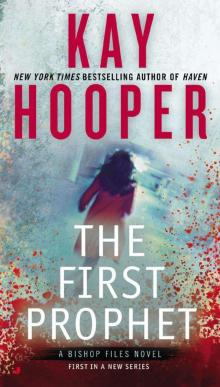 The First Prophet
The First Prophet Through the Looking Glass
Through the Looking Glass Golden Flames
Golden Flames Finding Laura
Finding Laura Haven
Haven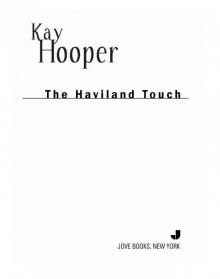 The Haviland Touch
The Haviland Touch The Lady and the Lion
The Lady and the Lion Haunted
Haunted Velvet Ligntning
Velvet Ligntning Blood Ties
Blood Ties Adelaide, the Enchantress
Adelaide, the Enchantress The Matchmaker
The Matchmaker Golden Threads
Golden Threads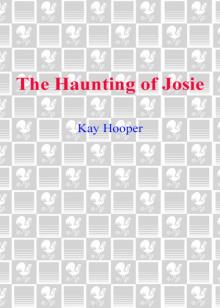 The Haunting of Josie
The Haunting of Josie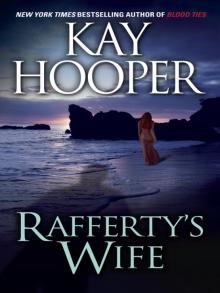 Rafferty's Wife
Rafferty's Wife Amanda
Amanda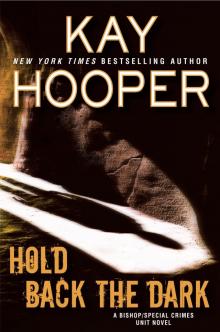 Hold Back the Dark
Hold Back the Dark Sense of Evil
Sense of Evil What Dreams May Come
What Dreams May Come Larger Than Life
Larger Than Life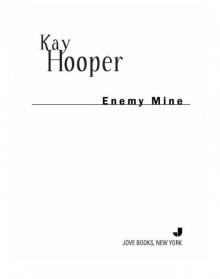 Enemy Mine
Enemy Mine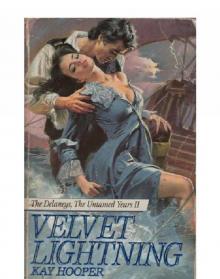 Velvet Lightning
Velvet Lightning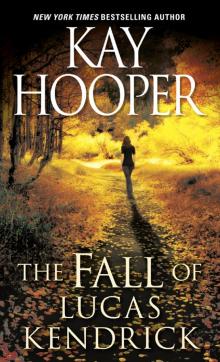 The Fall of Lucas Kendrick
The Fall of Lucas Kendrick Aces High
Aces High Captain's Paradise: A Novel
Captain's Paradise: A Novel The Wizard of Seattle
The Wizard of Seattle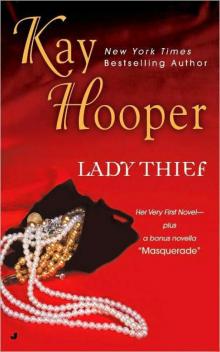 Lady Thief
Lady Thief Summer of the Unicorn
Summer of the Unicorn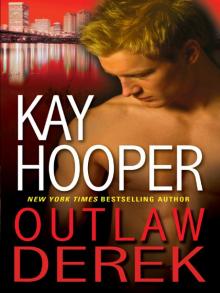 Outlaw Derek
Outlaw Derek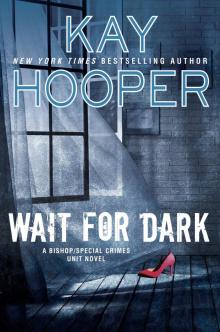 Wait for Dark
Wait for Dark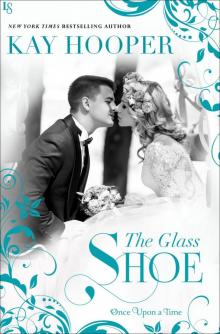 The Glass Shoe
The Glass Shoe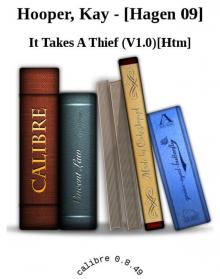 It Takes a Thief
It Takes a Thief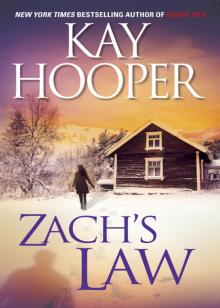 Zach's Law
Zach's Law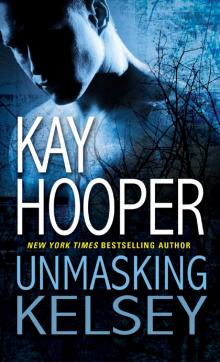 Unmasking Kelsey
Unmasking Kelsey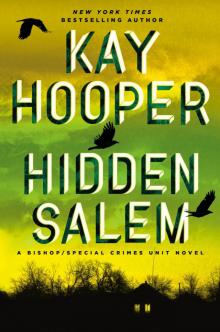 Hidden Salem
Hidden Salem